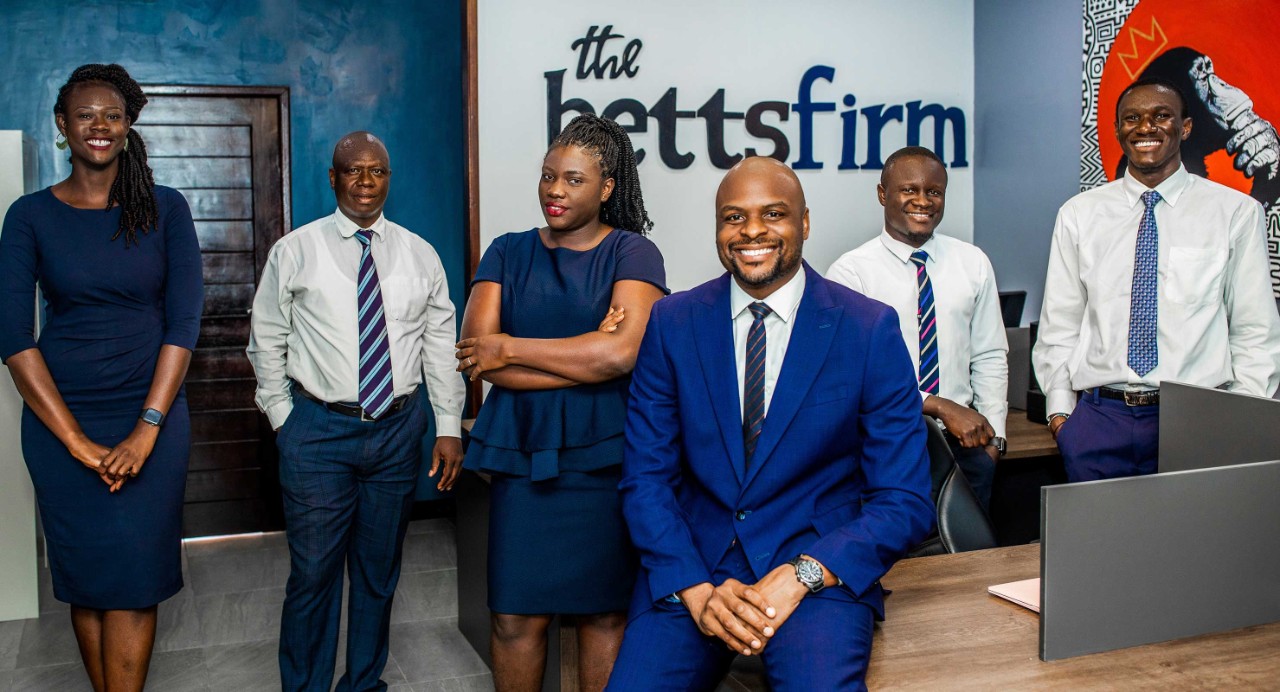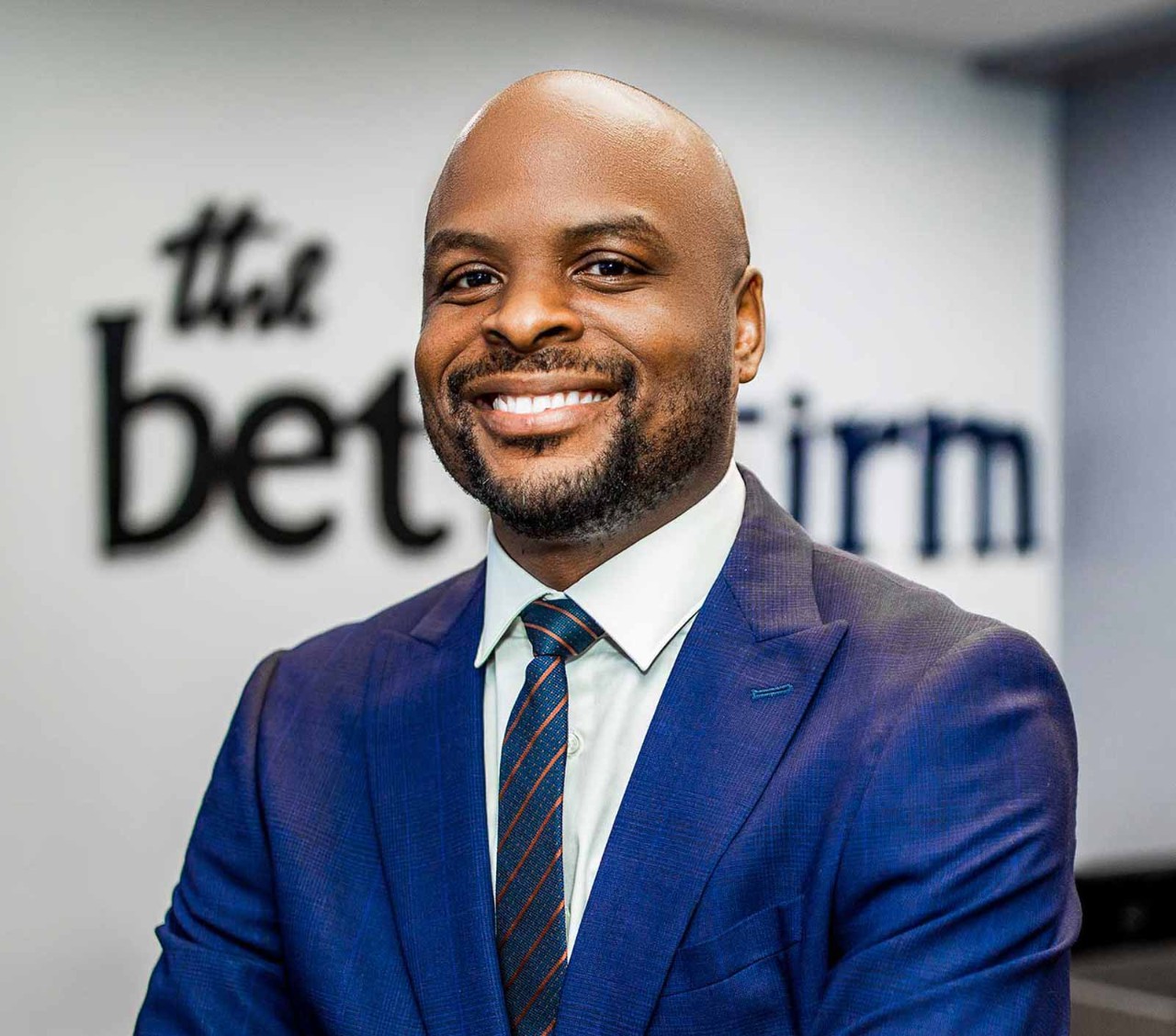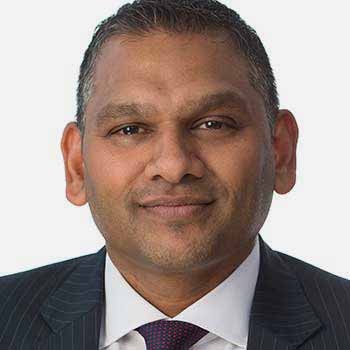
After nearly two decades working in the public sector, Alfred Akibo-Betts FCCA took the plunge and launched his own tax, accounting and advisory consultancy, The Betts Firm, just over a year ago. With a career spanning 17 years in Sierra Leone’s National Revenue Authority (NRA), he is well placed to advise clients on the intricacies of the West African country’s tax code.
He also recently co-founded a business school in the country’s capital, Freetown, to provide short courses for aspiring entrepreneurs. The courses, which Akibo-Betts hopes to expand this year to include degree-level studies, cover hard and soft business skills. And he is confident that the global Covid-19 pandemic will not slow down progress.
‘Between April and July last year, we had two lockdowns, but they only lasted three days each,’ he says. ‘However, restrictions meant that people were afraid, and this has led to an economic slowdown in the country as our markets were closed down.’
‘The move has given me more flexibility and the opportunity to meet my potential. I’m not boxed in now; it is like a breath of fresh air’
CV
January 2020–present
Co-founder, The Betts Firm
2019–present
Senior consultant, African Tax Administration Forum
2017–present
Co-founder and director, Freetown Business School
2016–present
Expert, International Monetary Fund
2003–19
Started as collector at the National Revenue Authority, Sierra Leone; subsequently senior collector, principal collector, assistant commissioner and deputy commissioner
This did not stop the former civil servant from organising events on how to deal with the crisis, alongside the 40-plus courses offered by Freetown Business School. However, he remains concerned about the wider impact of Covid-19 in Sierra Leone, notably on the informal sector of the economy, which makes up a significant proportion of work and income for many people in the country.
The Betts Firm is helping businesses and individuals navigate these difficult times by combining Akibo-Betts’ detailed knowledge of how the bureaucratic public sector in Sierra Leone works with the spirit of entrepreneurship. While Covid-19 was not on the radar when the firm opened its doors, there were still plenty of issues where businesses and individuals needed help.
‘When you have worked with government you build up a great deal of experience,’ he explains. ‘And the move has given me more flexibility and the opportunity to meet my potential. I’m not boxed in now; it is like a breath of fresh air.’
Perfect opening
Just as Akibo-Betts was leaving college in 2003, the National Revenue Authority was being created from an amalgamation of a number of different revenue-collecting agencies, following a recommendation and financing from the International Monetary Fund. Revenue collection in Sierra Leone had been low but began to rise with the establishment of the NRA.
‘It was a good opportunity for me,’ he recalls. ‘There were 100 recruits, and I started in the income tax department.’ It was at this point that he began studying for his ACCA Qualification, which he gained in 2006.
Rapid rise
‘As the authority expanded, so there were opportunities for promotion into senior positions,’ he says. ‘I was asked to join the non-tax revenue department [responsible for collecting fees for mining licences, passports etc] as part of the initial team that helped create the new unit. I like change, I like a new challenge. It gave me a new area of expertise and exposure to the legislative process.’
He took on further challenges, including the introduction of a goods and sales tax (GST), working on the drafting of legislation, human resource management, staff recruitment and public information campaigns.

Following the successful implementation of GST in 2010, he was on the move again, becoming deputy commissioner of domestic taxes, a post he held until 2018, when he returned to the non-tax revenue department, this time as deputy commissioner. During this time, he was certified as an IMF tax assessor, which allows him to act as a short-term expert for the IMF. ‘Being on this roster has opened up many other opportunities,’ he says.
A year after taking on this final public sector role, he left the civil service to set up The Betts Firm. ‘I was already working as a consultant, leading the African Tax Administration Forum’s [ATAF] project to strengthen the nexus between tax policy and tax administration, and found I couldn’t do that and my day job at the same time. I could see there were more opportunities outside the NRA.’
Regional commitment
He continues in this role today, also acting as ATAF’s principal liaison with the African Union’s Department of Economic Affairs as the two organisations collaborate to ensure African tax challenges and issues are addressed in the international tax arena. Recently, he chaired a West African Tax Administration Forum session on tax policy and legislation, where he called for a regional approach and even a continental approach to harmonising policy and legislation on tax incentives for foreign investors.
It is a subject he is passionate about. ‘Countries are giving out tax incentives to overseas investors as if they were sweets,’ he says. Through cooperation and closer coordination of tax policies, he would like to see the region create a structure similar to that of the European Union. He admits, though, that it is an ambitious, long-term proposition.
More locally, he leads the Freetown Blue Peace Initiative, a collaboration between Freetown City Council and the United Nations Capital Development Fund, funded by the Swiss Agency for Development and Cooperation. Part of the mayor’s Transform Freetown programme, its goals include developing water and sanitation infrastructure for Freetonians through innovative financing and helping Sierra Leone meet the United Nations Sustainable Goal 6: Clean Water and Sanitation.
‘As part of my work, I liaise regularly with the Guma Valley Water Company, community players and other stakeholders in the delivery of the various Freetown Blue Peace projects, ensuring that vulnerable communities are supported and at the same time delivering business models that ensure the sustainability of the initiatives,’ he says.
Back to school
He is equally committed to promoting entrepreneurship. He co-founded Freetown Business School in 2017 to address a lack of affordable training and development programmes for managers and entrepreneurs in Sierra Leone. Current courses last two days, a week or six weeks, and cover human resources, procurement and supply chain management, tax, risk management, data analytics, marketing and leadership development. So far, more than 1,500 students have passed through the school.
His own ongoing education includes following a comparative tax policy and administration programme at the Harvard Kennedy School, and he is currently studying for a public leadership qualification.
Commitments on this scale can be all-consuming, and the Manchester United fan’s top piece of advice is to delegate wherever possible. ‘You can’t do everything yourself,’ he points out.
He himself ensures he is home every day by 5pm to be with his wife and two children. ‘They are the reason I do what I do, they are my support system,’ he says. He admits to the occasional power nap, but also to working through the night if required. However, when his 11-year-old daughter demands his time, she gets it. There are some things that just can’t be delegated.



